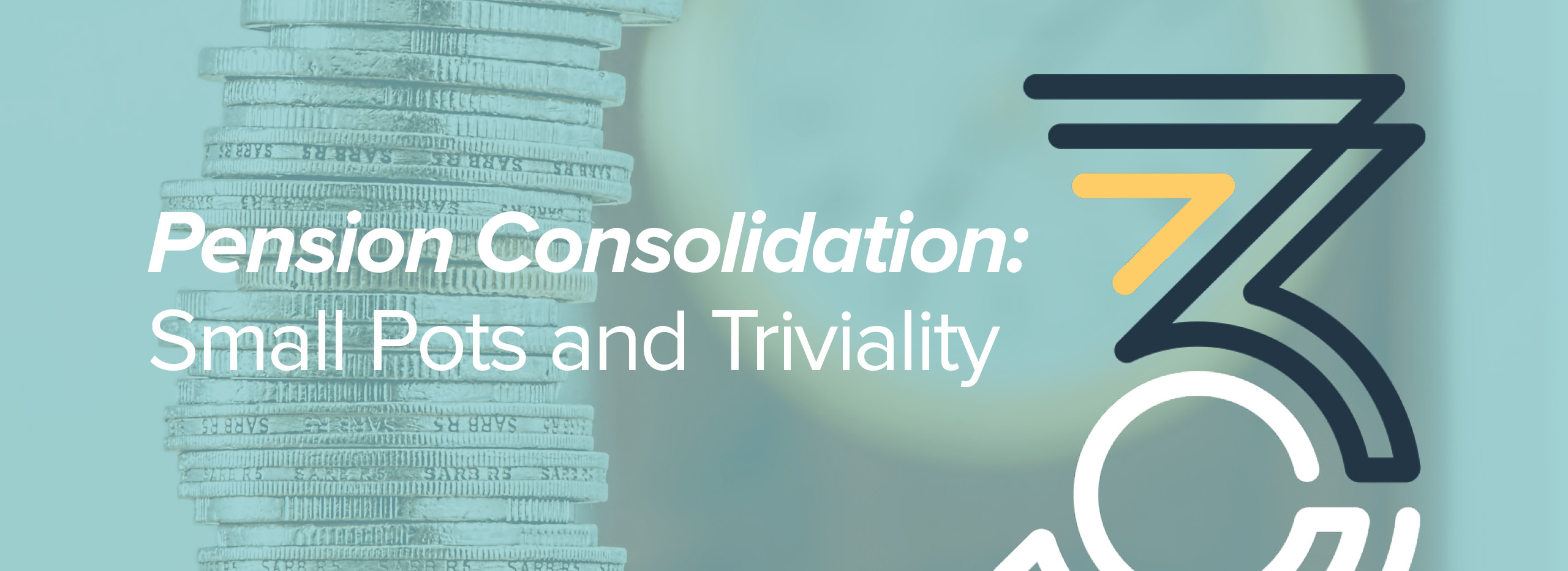Last week, we spoke about Pension consolidation and its rising popularity. If you are thinking about consolidating your pensions, it’s important to understand the concept of trivial commutation and what it means for you.
In a nutshell, if you have pensions which are worth less than certain thresholds, you might be able to access the money more simply and flexibly than you could, if they were bigger.
This branches off into 6 directions in total, but let’s look at the 2 most common situations: Trivial Commutation, and small lump sums, often called Small Pots. Let’s look at each in turn.
Trivial commutation, these days, refers to defined benefit pension schemes. These are the schemes which were typically ‘final salary’, or perhaps in more recent years, ‘career average salary’. Essentially, they are the types of pensions where you are promised a certain level of income in retirement, which is increased in increments for each year of pensionable service you accrue. You know the framework for working out how much you will get in retirement, in other words, your benefit is defined.
So, if you have one of these pensions, the trivial commutation rules may apply to you. In essence, if your total pension benefits amount to a lump sum value of less than £30,000, you may have the ability to take the lump sum out in full, ending your rights under the scheme. To work out whether your defined benefit’s equivalent lump sum value is less than £30,000, you multiply the annual income by (usually) a factor of 20. Add on any extra lump sum entitlement accrued, and that’s your value.
There are other rules and criteria that apply but essentially, a defined benefit pension which is worth less than £30,000, could potentially be taken as a lump sum, rather than spread out as an income throughout your retirement.
Next, defined contribution, or money purchase pensions. These are the pensions where you accrue a ‘pot’ of money, which is usually invested, and your pension income will be dependent on how big the pension pot is when you retire. It’s your contributions, plus any investment growth, which will determine the size of your pension pot. If you have defined contribution pensions which are worth less than £10,000 at retirement*, you may be able to access them as small pots. This means, you could cash in the entire fund in one go, which will cease your ongoing arrangement. You can do this with up to 3 pots.
There are no tax ‘perks’ to taking the money in one fell swoop; 25% will be tax-free (your tax-free cash) with the remaining 75% being taxed at your marginal rate. The ‘perk’, if we look at it that way, is the ability to convert smaller pensions which may arguably provide very little long-term income benefits, into lump sums, to use as you see fit.
So in the context of pension consolidation, it’s important to note that when small pensions are consolidated, you may be ruling out the possibility of accessing benefits under the rules of triviality or small lump sums.
*Over the age of 55 unless you are in ill health. Note- this is planned to rise to age 57 in 2028.
If you wish to discuss the contents of this blog post please contact corryn.wild@three-counties.co.uk or telephone the office on 0191 230 3034.
Disclaimer: The above content does not constitute financial advice. Your circumstances may differ from those outlined and you should seek advice which is relevant to your own situation.


